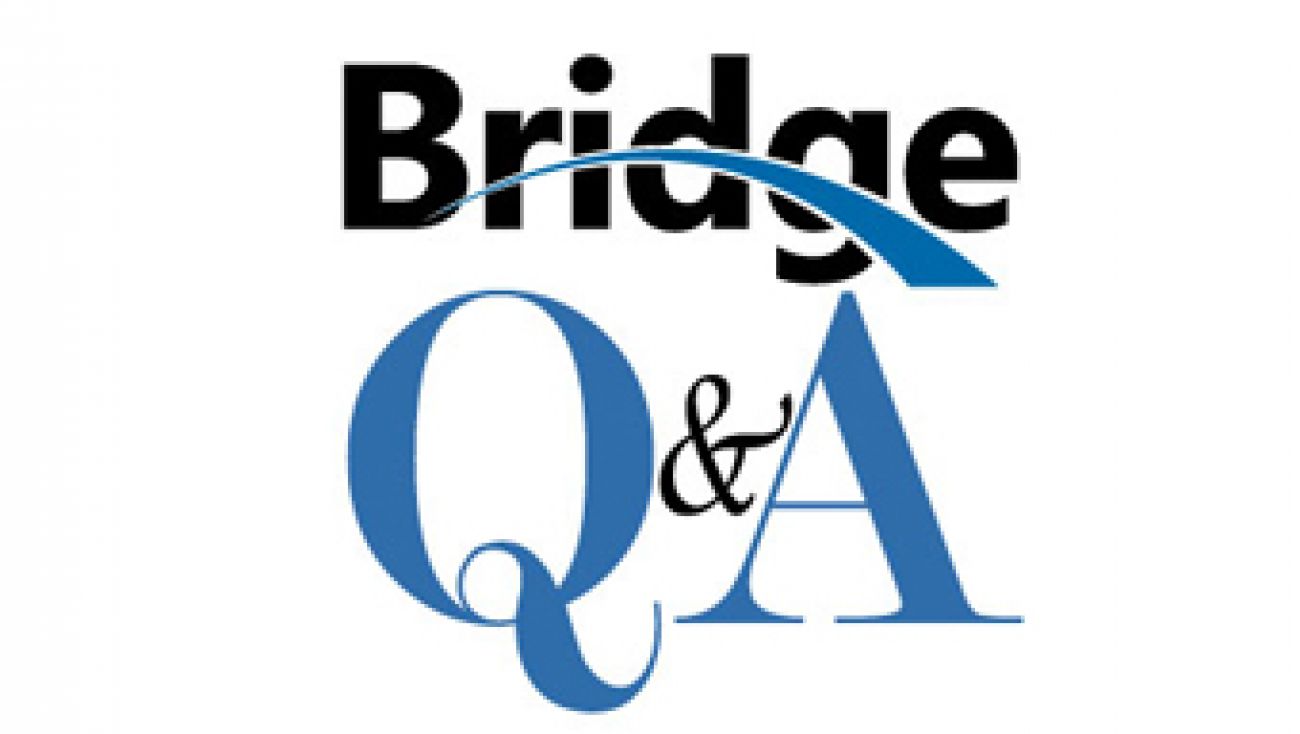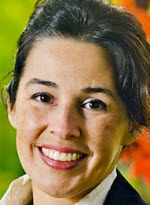Helping teachers improve will help students learn, education group argues

Amber Arellano is the executive director of Education Trust-Midwest, Michigan’s only statewide, nonpartisan advocacy and research organization focused solely on education. Arellano has testified before legislative committees on a variety of education-related bills, and is a strong believer in using data to help gauge what works and doesn’t work in public schools. Arellano responded to questions from Bridge about the merits of its Value-Added Matrix, and a teacher evaluation system now in development in Michigan.
Bridge: In Bridge’s Value-Added Matrix, some high-poverty schools with low standardized scores were rated higher than affluent suburban schools with high test scores. Why is this? And would the best “value-added” schools add value for all students, no matter their socioeconomic status?
A: A “value-added” statistical model can reveal some unexpected results. That’s why we should not evaluate schools solely on raw scores, because that doesn’t take into account where those students were when they entered the classroom as early as kindergarten. As you discovered, value-added sometimes illuminates affluent schools that are not improving student learning much and, conversely, high-poverty schools that are greatly improving student learning.
In fact, the Education Trust has long acknowledged these high-poverty, high-growth schools with our national “Dispelling the Myth Award.” For example, we recognized North Godwin Elementary School near Grand Rapids as one of four national DTM winners in 2009.

- Amber Arellano is executive director of Education Trust-Midwest, whose “goal is to close the gaps in opportunity and achievement for all children, particularly those from low-income families or who are African American, Latino or American Indian, in Michigan and beyond.”
We believe many more high-performing schools -- and high-performing individual educators -- will be identified through the implementation of a statewide support, data and evaluation system. This will allow others to learn from these extraordinary educators in our state, and raise learning and teaching for all of our students. That’s why we are so committed to this work.
Bridge: Your organization has long argued that Michigan needs to better support and provide professional development to teachers, along with greater accountability. Why are teachers such a priority?
A: Teaching quality is the number one in-school predicator of student achievement, widespread research shows. It’s more powerful than a school’s geographic location or zip code. Yet we have not done a good job of developing our early career teachers, or giving even our veteran teachers the professional feedback and support they need to soar. If we are going to raise student achievement in Michigan -- and we must, as our state continues to fall further and further behind other states -- then we must better develop and support our teachers. Smart evaluation is the first step toward good professional development and feedback.
Bridge: How are teachers currently evaluated in Michigan?
A: Until recently, every school district in Michigan devised its own method for evaluating teachers. This has led to weak practices, including little to no support or feedback for teachers. (See our report here).
Thankfully, evaluation has changed. Legislation passed in 2011 created the Michigan Council for Educator Effectiveness. The council, composed of education experts, is charged with developing a comprehensive statewide educator evaluation system. What’s exciting is that this system creates, for the first time, a common definition throughout the state for what effective teaching looks like.
Right now, we don’t have such a definition or common vision. Every school, teacher preparation program -- and sometimes, even every classroom -- makes up their own. It’s no wonder that our early-career teachers fail to get strong developmental feedback and training.
If we develop this system correctly, it will not only help teachers, it will also allow parents to compare their children’s school’s performance with schools across the state.
Bridge: What will this new evaluation system look like? Is it all based on standardized testing? And is that fair?
A: A strong statewide system has many components, including standards that will raise the level of quality -- and fairness -- for all teachers. Our most recent report pointed out the need for this in Michigan.
Smart evaluation considers multiple measures, including classroom observations by trained evaluators, and more training for new and struggling teachers. In the past, observations were often cursory affairs in which a principal would stop in perhaps once a year, fill in a checklist and leave the results with the teacher who, often as not, learned little from the exercise.
Too often, this is continuing to happen in Michigan.
This new system will actually better protect teachers from arbitrary or retaliatory evaluations, in part because it contains so many different measurements of teacher effectiveness, rather than relying on one supervisor’s observation.
Another important measure is value-added data, which is generated in part by standardized student assessments. This is important because it will tell us how much teachers are raising the level of learning for every one of their students. Highly sophisticated value-added models take factors such as a student’s poverty and socioeconomic segregation into consideration. Such a system would ensure we don’t punish teachers who work with more challenging student populations.
Lastly, student surveys are another tool that appears to hold great promise. Several studies have found student surveys to be highly correlative to other measures of effective evaluation. This makes sense, since students are daily observers of teacher performance. Some Michigan teachers say they already routinely survey students to help improve their instruction.
Bridge: How is your message being received in the state?
A: Really well, among most circles. Civic leaders, policy-makers, parents and others have applauded our work. That said, there’s also a lot of confusion about what a statewide evaluation system looks like. During recent meetings with local school leaders, they told us they didn’t realize that a statewide growth model would consider for things like poverty. They were relieved to hear this.
Effective evaluation is not about bashing educators. It’s about giving dedicated professionals the feedback, support and development they need to improve. Even high-performing, veteran teachers want to get better; that’s part of what makes them extraordinary.
Academic State Champs -- Complete coverage
Top of the mark Bridge Magazine set out to find which Michigan public schools do the best job in adding value – helping students succeed beyond expectations. This “Value-Added Matrix” identified some surprising results among both traditional and charter schools in the state.
Academic State Champs 2012 From Godwin Heights to Dearborn, from Baldwin to Troy, from Gaylord to Ann Arbor, see Bridge’s 2012 Academic State Champs.
 Where’s your school? Bridge applied its “Value-Added Matrix” to 560 schools across the state – see where yours ranked in this handy searchable database.
Where’s your school? Bridge applied its “Value-Added Matrix” to 560 schools across the state – see where yours ranked in this handy searchable database.
Newcomers, old practices Charter schools in the tight-knit Arab communities in Dearborn dominated the top of Bridge’s statewide rankings in 2012. Educators credit their success in aiding students, many of them recent immigrants, to their familiarity with the culture and their commitment to making learning a family affair.
The charter conundrum Charter schools in Michigan posted a remarkable presence at the top – and the bottom – of Bridge’s 2012 Academic State Champ rankings.
Finding what works Education Trust-Midwest has long studied the central question of education policy: What works? Its executive director, Amber Arellano, tells Bridge that if Michigan helps teachers improve their skills, boosts in student learning will follow.
Read stories by MLive Media Group reporters on how schools in your area fared: http://topics.mlive.com/tag/bridge-champs/
Michigan Education Watch
Michigan Education Watch is made possible by generous financial support from:
Subscribe to Michigan Education Watch
See what new members are saying about why they donated to Bridge Michigan:
- “In order for this information to be accurate and unbiased it must be underwritten by its readers, not by special interests.” - Larry S.
- “Not many other media sources report on the topics Bridge does.” - Susan B.
- “Your journalism is outstanding and rare these days.” - Mark S.
If you want to ensure the future of nonpartisan, nonprofit Michigan journalism, please become a member today. You, too, will be asked why you donated and maybe we'll feature your quote next time!



